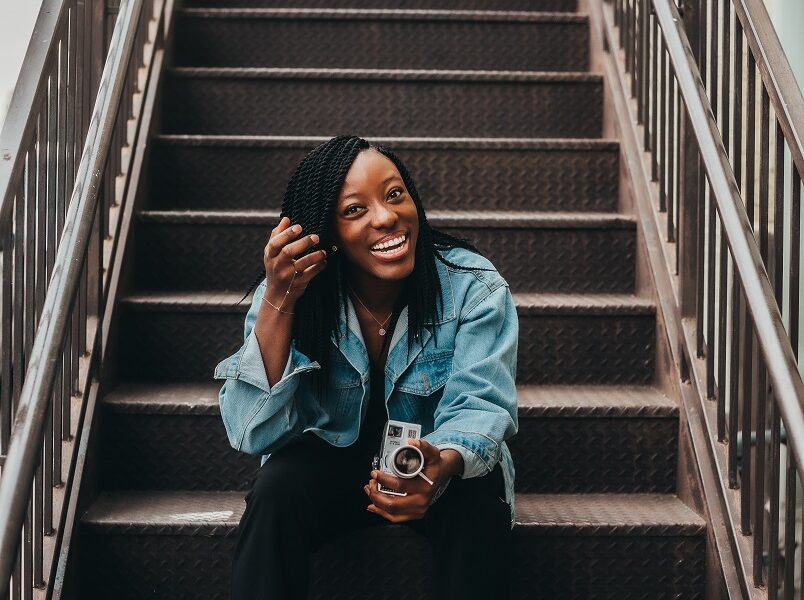

Today we’d like to introduce you to Jalea Jackson.
Hi Jalea, so excited to have you on the platform. So before we get into questions about your work-life, maybe you can bring our readers up to speed on your story and how you got to where you are today?
For someone who still considers themselves “young” in the industry, I feel like I’ve been making films all my life. The first “documentary” I made was the summer after my freshman year in high school. I was given the opportunity to travel to Europe as a part of the People to People Student Ambassadors. My church helped raise most of the funds and my mom told me that I had to do something that showed them that they’d made a good investment. The first thing I could think of was making a documentary about my trip. So, I took my uncle’s camcorder and documented every day of my trip and at the end of each day, filmed a little interview explaining the day’s events. Once I got back, I had a big screening event at my church to showcase my film.
That trip and the generosity of my church catapulted my filmmaking career. As someone who can come off initially as shy or soft-spoken, I found filmmaking to be my voice. I was able to articulate my viewpoints and ideas in a way mere words couldn’t. It was also a way for me to bring my community together and invoke change, and for me, that’s what makes filmmaking so powerful.
I started my career as a documentarian. I found the median a lot easier to navigate than narrative filmmaking. I loved the aspect of gathering research and conducting interviews, also at the time, I didn’t know how to direct actors or how to articulate the emotions I wanted them to express. I ended my high school career having directed and produced a documentary on the educational gap between white and minority students and on a teen drop-in center in my hometown for homeless and displaced teens.
With all of that, I just saw film as a hobby, not as a career. Growing up with my mom being a doctor (Ph.D.) and her entire immediate family being doctors, I grew up having a love for STEM. I participated in any extracurricular activities that involved math and science and ultimately wanted to be a computer engineer. It wasn’t until I was about to graduate that I realized I’d be much happier pursuing a career in film. My mom was incredibly supportive and even said, “I already knew that, I was just waiting on you.”
I attended Louisiana State University (LSU) and got my degree in Theatre with a concentration in Film and Television. My class of 2016 was the first class to graduate with the concentration. The film department was new and I didn’t have my first film classes until my junior year, but while there, because of all the theatre classes I had to take, I learned how to act and how to direct actors. I also concentrated more on editing. There weren’t any editing classes, so I taught myself. Editing is such an integral part of filmmaking and is essentially where the story comes to life. I’m first and foremost an Editor, then a Producer and Director.
In my junior year, I met my first film mentor and professor Josh Overbay. He really helped mold me into the filmmaker I am today and became my Honors Thesis Advisor for my documentary “RedefiNing The Word”, which is a documentary that explores the use of the N-word against multiple demographics. I was thankful enough to have a screening event on LSU’s campus where we brought the Baton Rouge, New Orleans, and Lafayette communities together with collegiate professors, artists, and performers to discuss race and race relations.
After I graduated from LSU, I attended the Nate Parker Film Institute (NPF). NPF is a non-profit organization that seeks to break the barriers in the film industry by empowering young voices of African descent to “tell their unique and diverse stories that may otherwise not be heard.” I learned to appreciate the type of films that I wanted to tell. I’d found my target audience. Six years later, I’m a staff member for the institute and serve as an Editor, Producer, and Mentor.
Shortly after attending the institute, I moved to New Orleans and started a career as a freelance filmmaker. I had the opportunity to work on some amazing projects with even more amazing people. It was there that I Directed, Produced, Wrote, and Edited my directorial debut short film “Things With Feathers”. Things With Feathers is a short narrative that challenges the cultural silence black women have created as a coping method for sexual assault. It explores the need for seeking counseling over just praying and brings awareness to issues of sexual assault and violence. Through this film, I was able to screen the film across the country and speak at several sexual assault awareness and prevention conferences.
From the first film I made in 2009 to now, I intentionally focus on telling stories centered on highlighting the culture and authenticity of marginalized communities. I make films “For, By, Near, and About Black People”. I want to reclaim our stories that are often misconstrued or untold and show the ever multifaceted layers that we are.
I’m sure you wouldn’t say it’s been obstacle free, but so far would you say the journey have been a fairly smooth road?
It hasn’t been a smooth road by far, but it’s made me appreciate my craft even more! As a black female trying to start her career as a filmmaker at a PWI (predominately white institute), I struggled to tell the stories that I wanted to tell. There were several times in group projects where my ideas were shut down and dismissed. There were moments when I’d show my films, films that highlighted the Black Experience, where after the screening, the entire room would be completely silent.
I remember my junior year in college, I was working on a short film with my film partner. We were filming outside at night by LSU’s baseball stadium and these guys in a black pickup truck kept driving past where we were filming. The final time they drove past, they yelled at us, called us Niggers, and started driving straight towards us. We all hoped in the nearest car. I’d never been so scared in my life.
I’ve had another film that I directed that was turned into a silent film because the content of the message was “too much” for the audience. This was the first film that I’d been hired to just direct. I wasn’t a part of the inception and concept phases of the process, but because of the content of the message and my background, I was hired to help tell this story. Once we started shooting, and the type of director I am, my actors and I improvised some of the scenes. The emotions were raw, authentic, and genuine. Those scenes were some of the best performances I’ve had the pleasure of directing, but the Executive Producer thought it was too real for the targeted audience and cut most of the dialogue.
I’ve also had instances where I’ve been approached to work on a project, only to find out that they wanted my name and demographic, a Black Woman, to get certain grants and funding.
All of these situations have made me appreciate the stories I tell, but also the community of filmmakers, actors, and mentors that I’ve connected with throughout the years.
Thanks – so what else should our readers know about your work and what you’re currently focused on?
Being an Editor has always and will probably always be my first love. There’s something about getting the raw, uncut footage and transforming it into this final work of art that the audience gets to see. Editing has this analytical and creative component that’s so intriguing to me. I love manipulating the footage to work to my advantage and for the story, and in a way that only I know.
As an introvert, I find myself escaping in the footage. I can get lost in it all. The first day I started editing “Things With Feathers”, I edited for 18 hours straight through a hurricane. One of my cast members, the late great Carol Sutton called me to check on me, my response was, “as long as I still have power and can edit, I’m fine!”
To this day, my favorite editing project, which I’m most proud of, is from this short film I edited with my old film partner, Zandashé Brown, called “Blood Runs Down”. Her directorial needs and visions always pushed me as an editor. There’s a moment in the story where the main character, this young girl, has trapped herself in her room to get away from her possessed mom. The girl is looking at the door, but then her shadow is seen picking up a bat. That whole scene was shot and edited practically, we didn’t use any CGI or special effects and I’m extremely proud of how that scene turned out.
What sort of changes are you expecting over the next 5-10 years?
We are starting to see it now, but I think a more appreciation and highlight of independent films. I also think we will see a lot more films featuring and about minorities and people not commonly portrayed on screen.
Contact Info:
- Email: jalea@jaleajackson.com
- Website: www.jaleajackson.com
- Instagram: https://www.instagram.com/thejaleajackson
- Facebook: https://www.facebook.com/TheJaleaJackson
- Other: https://vimeo.com/jaleajackson
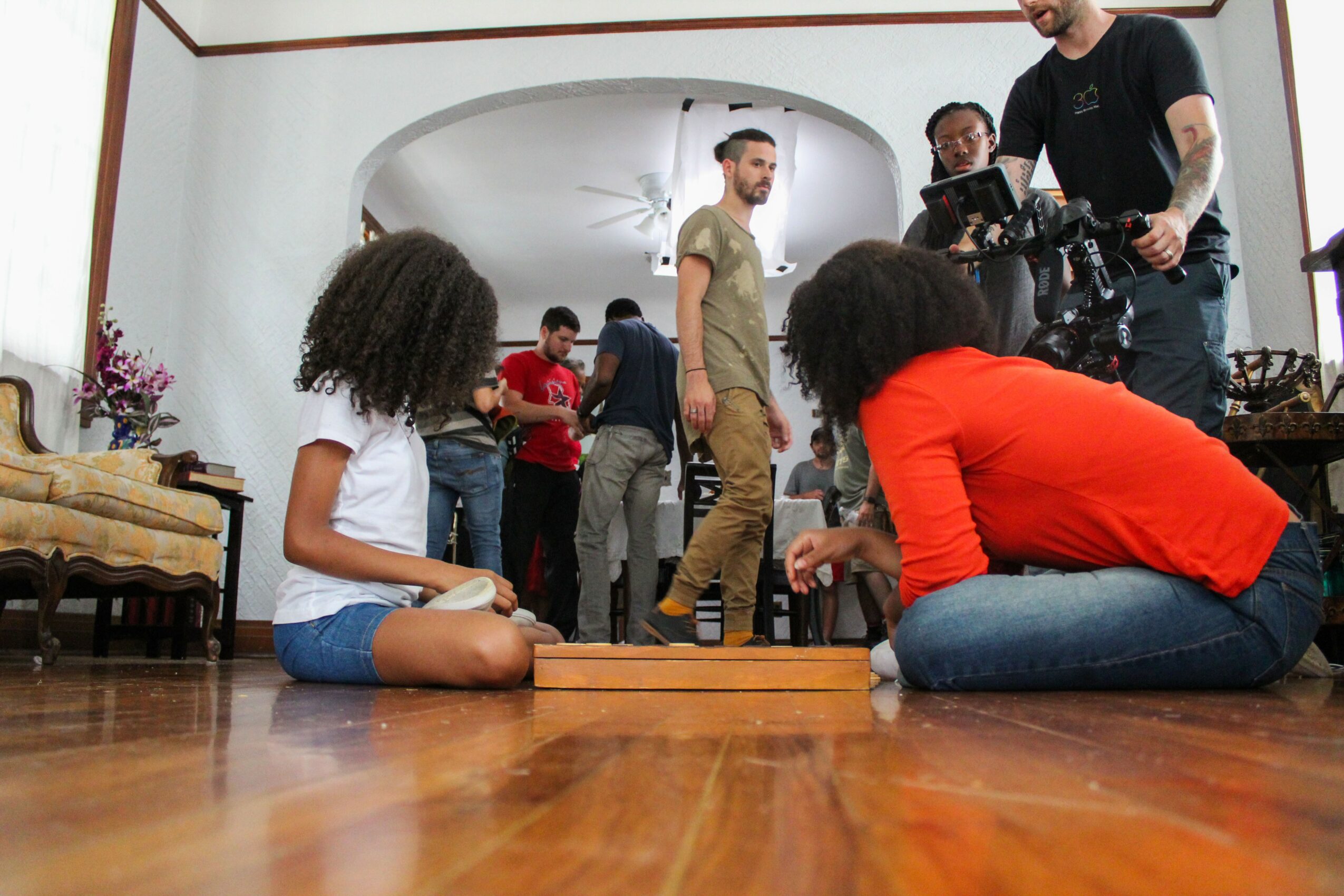
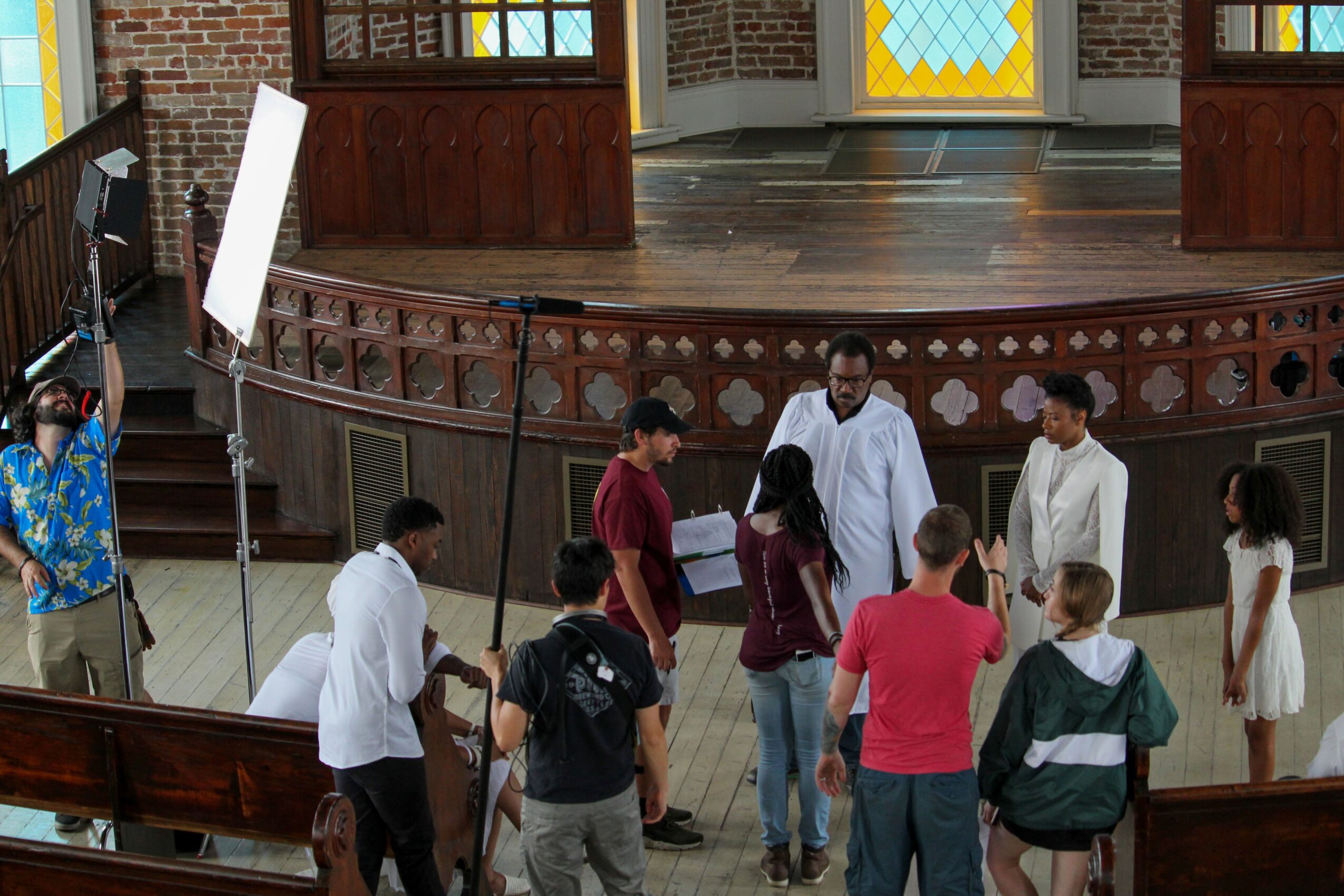
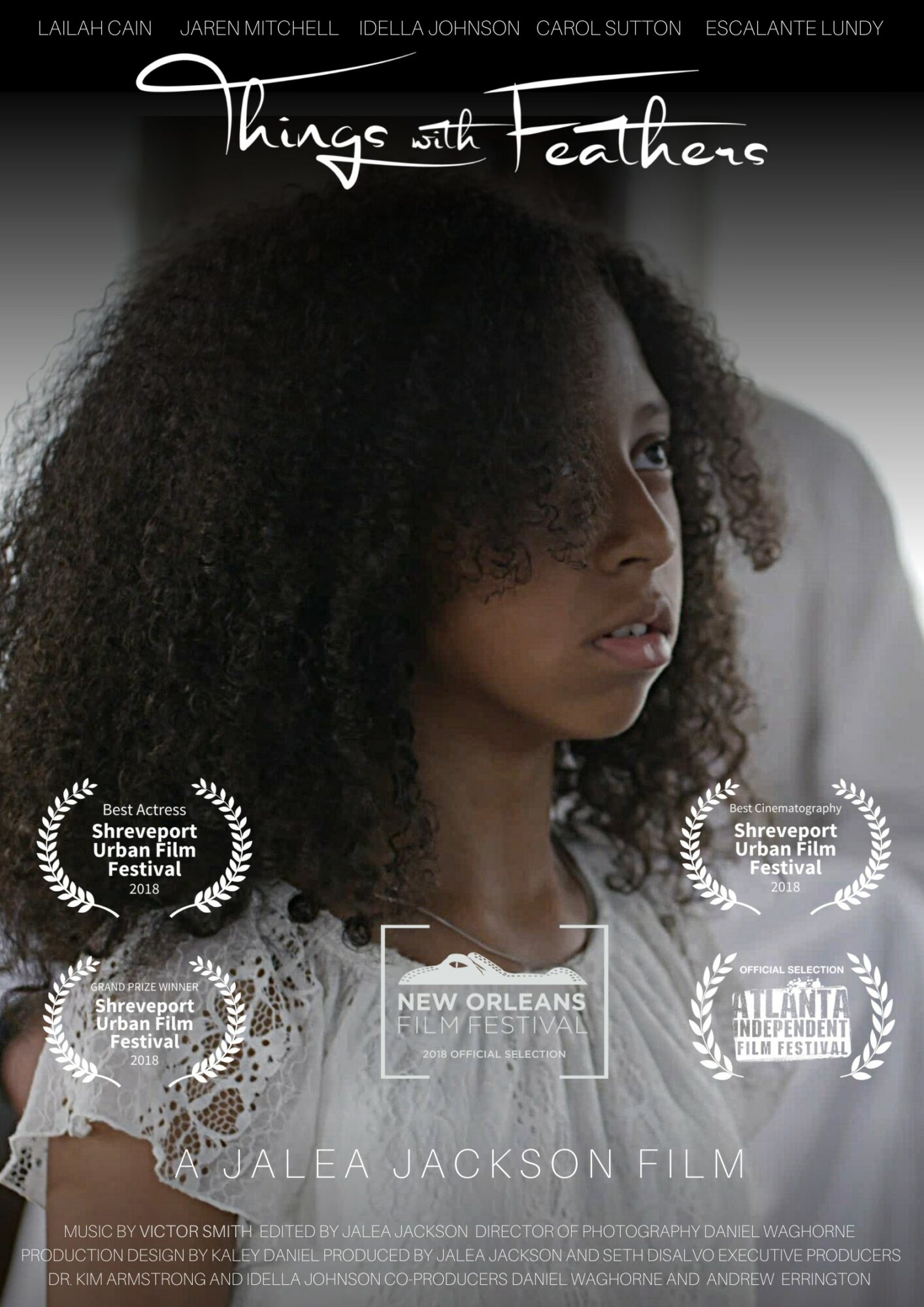
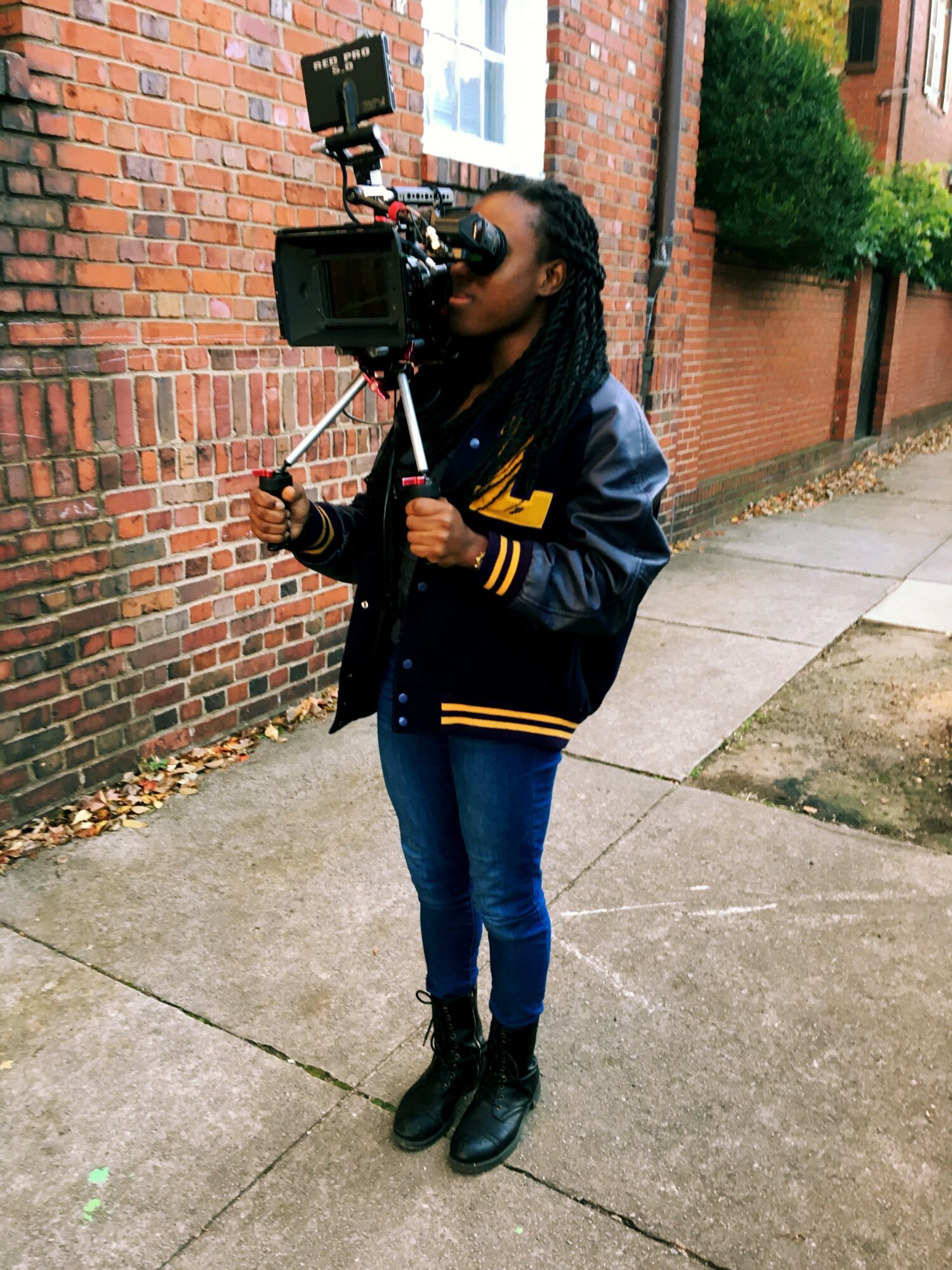
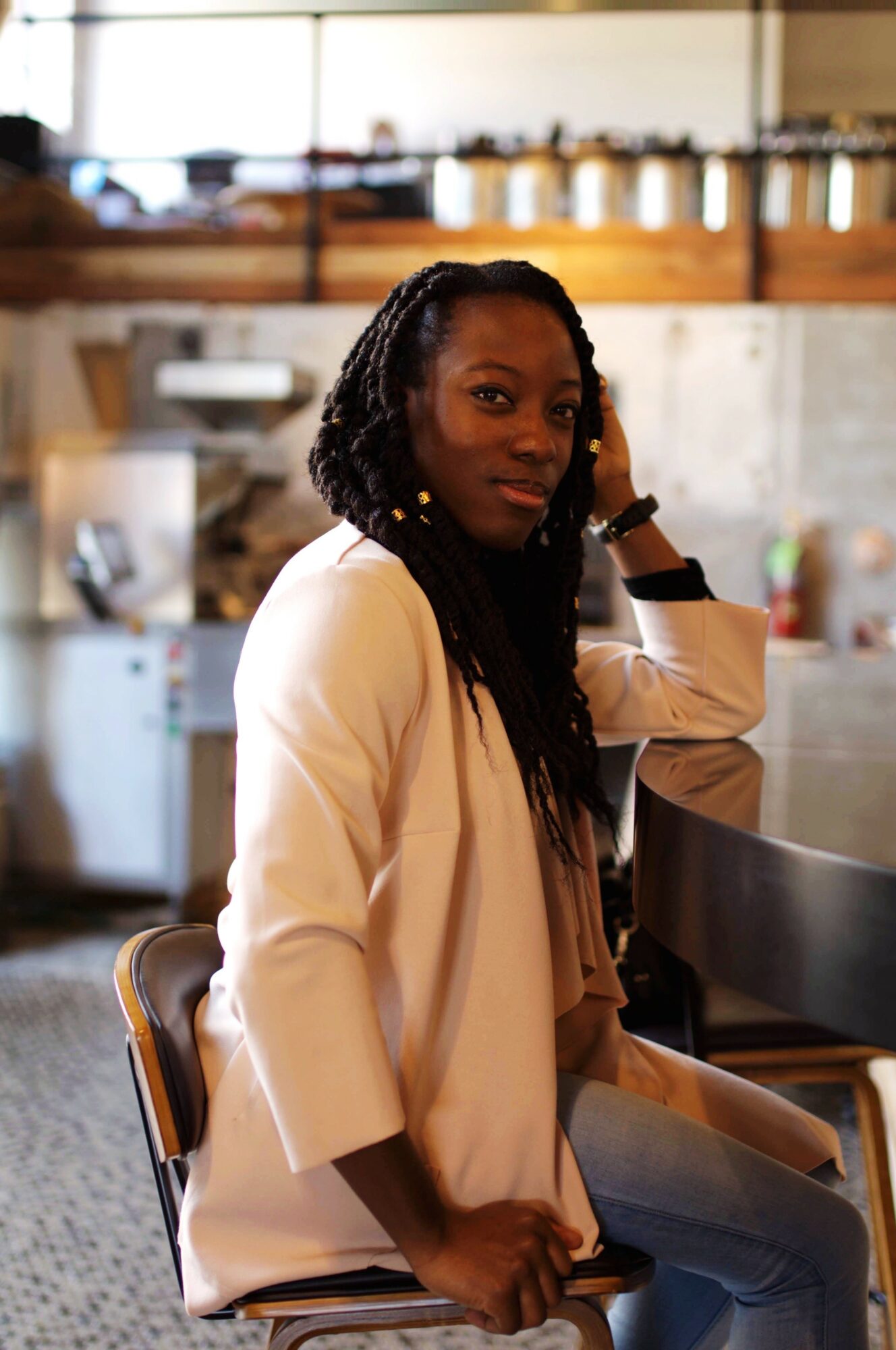
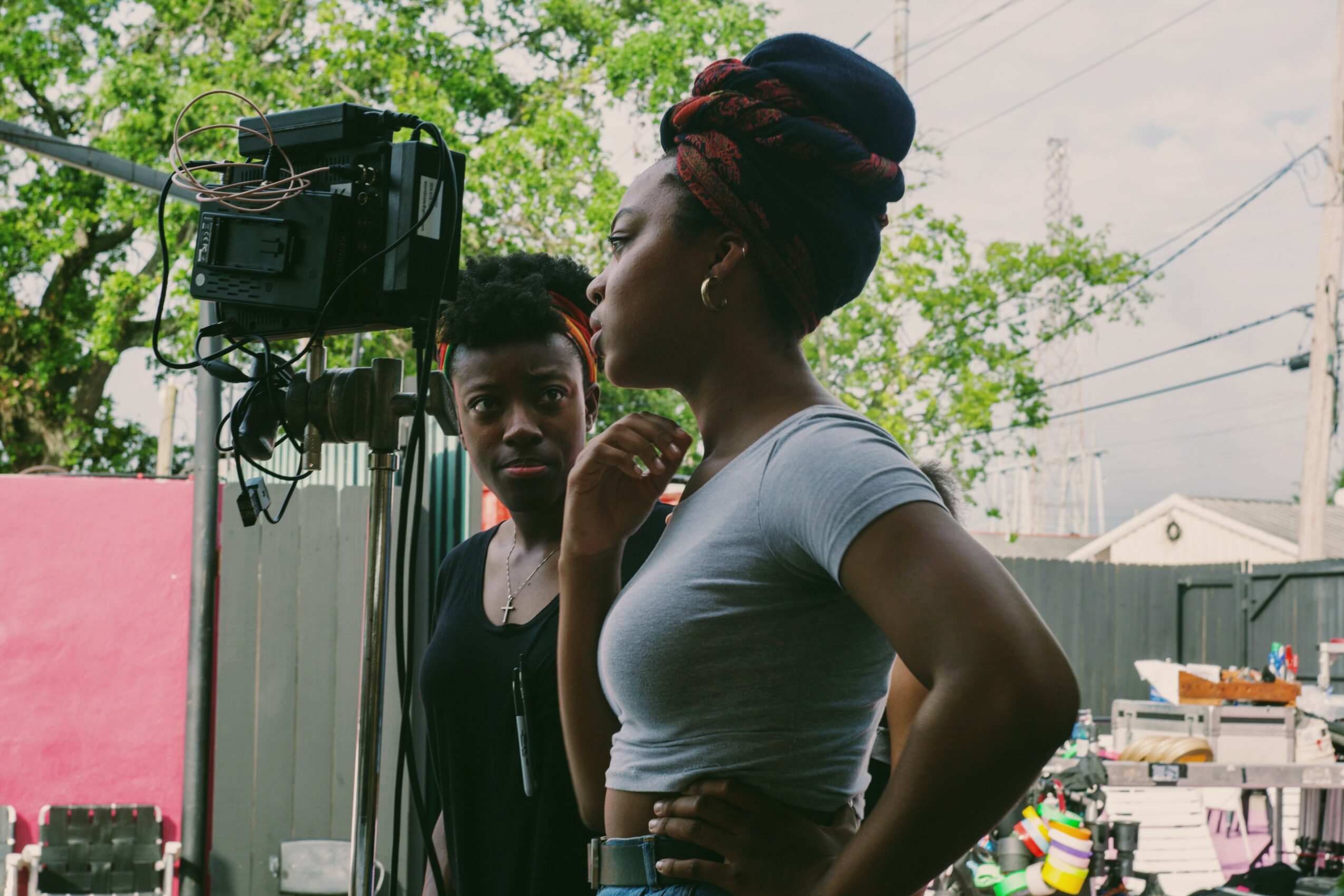
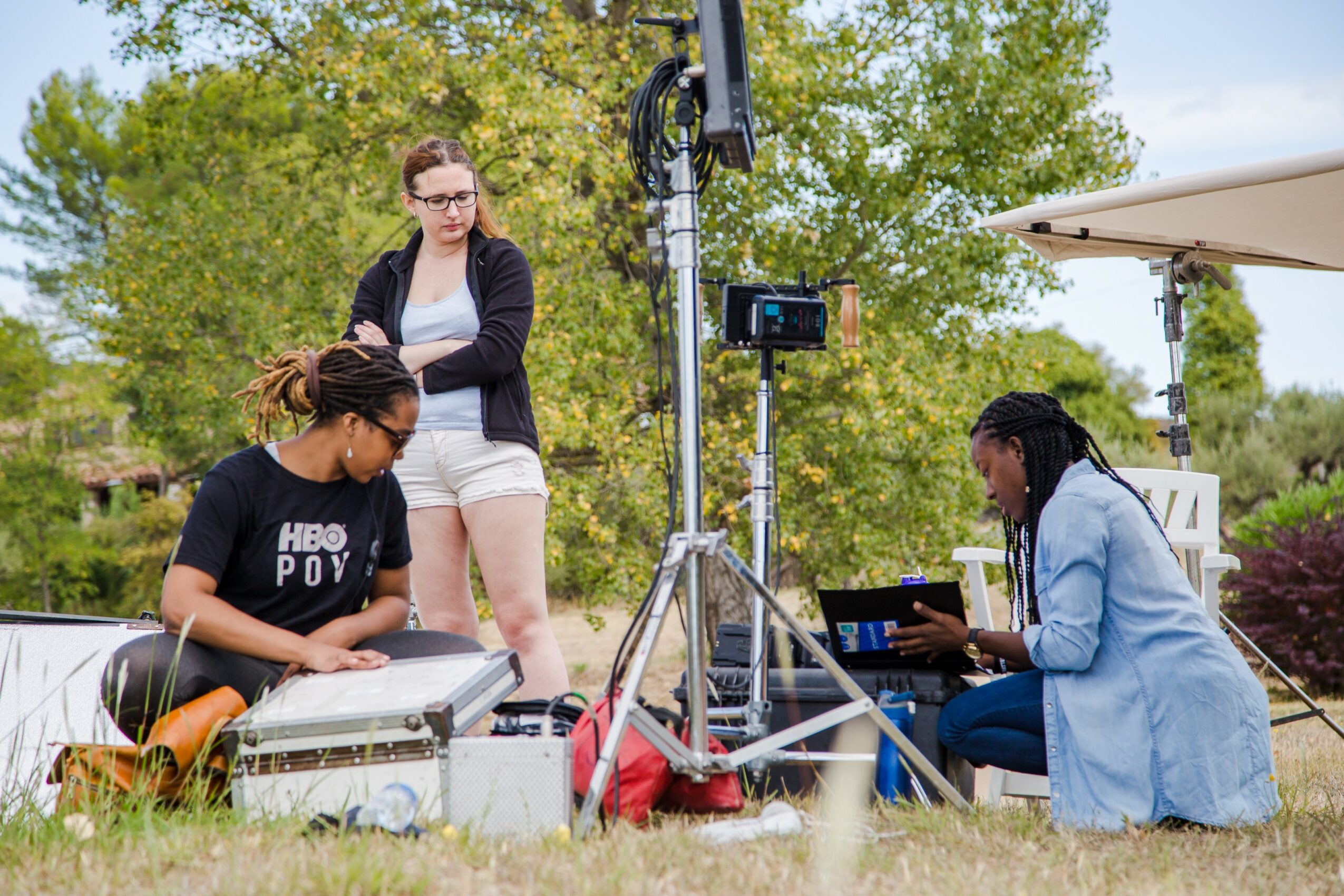
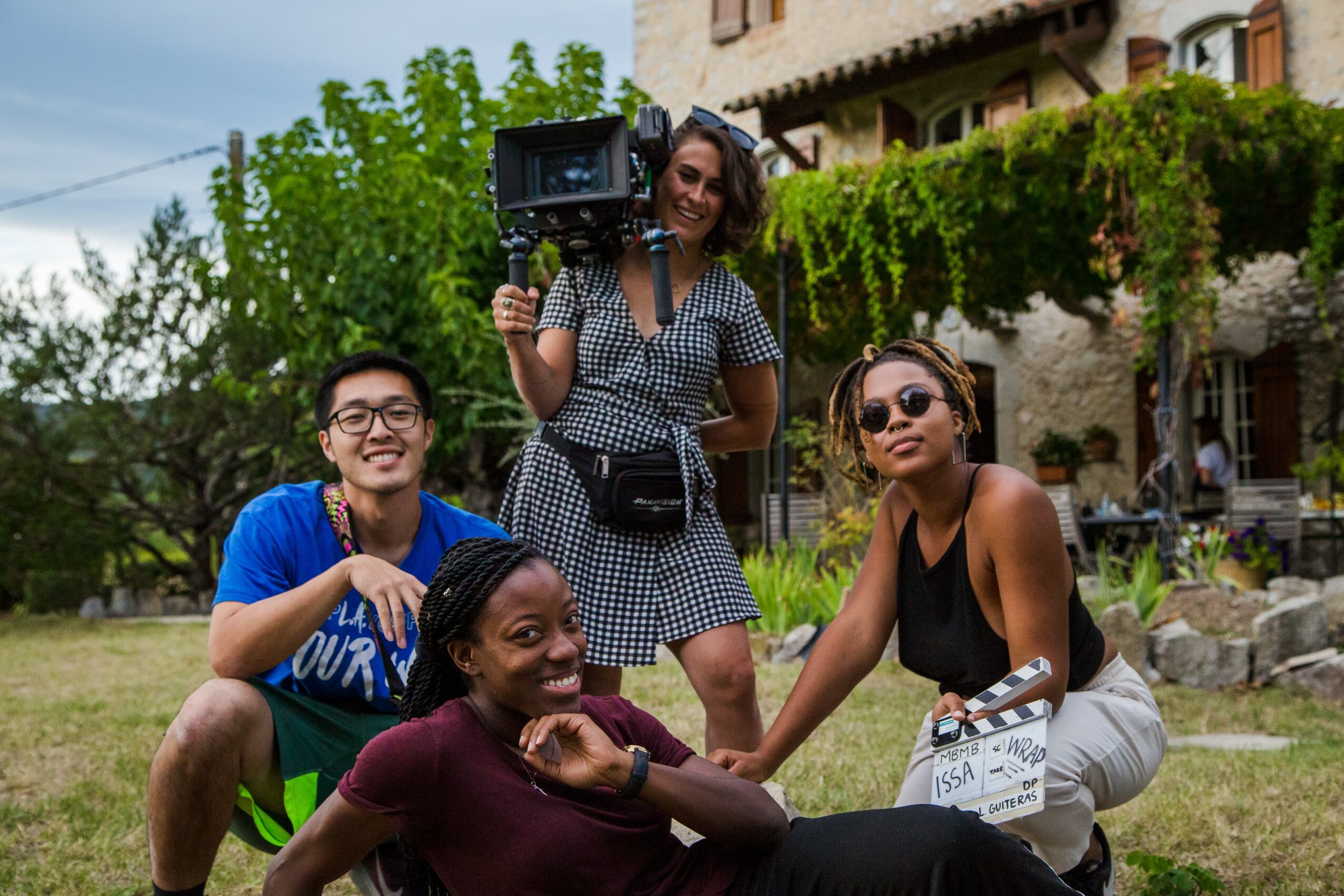
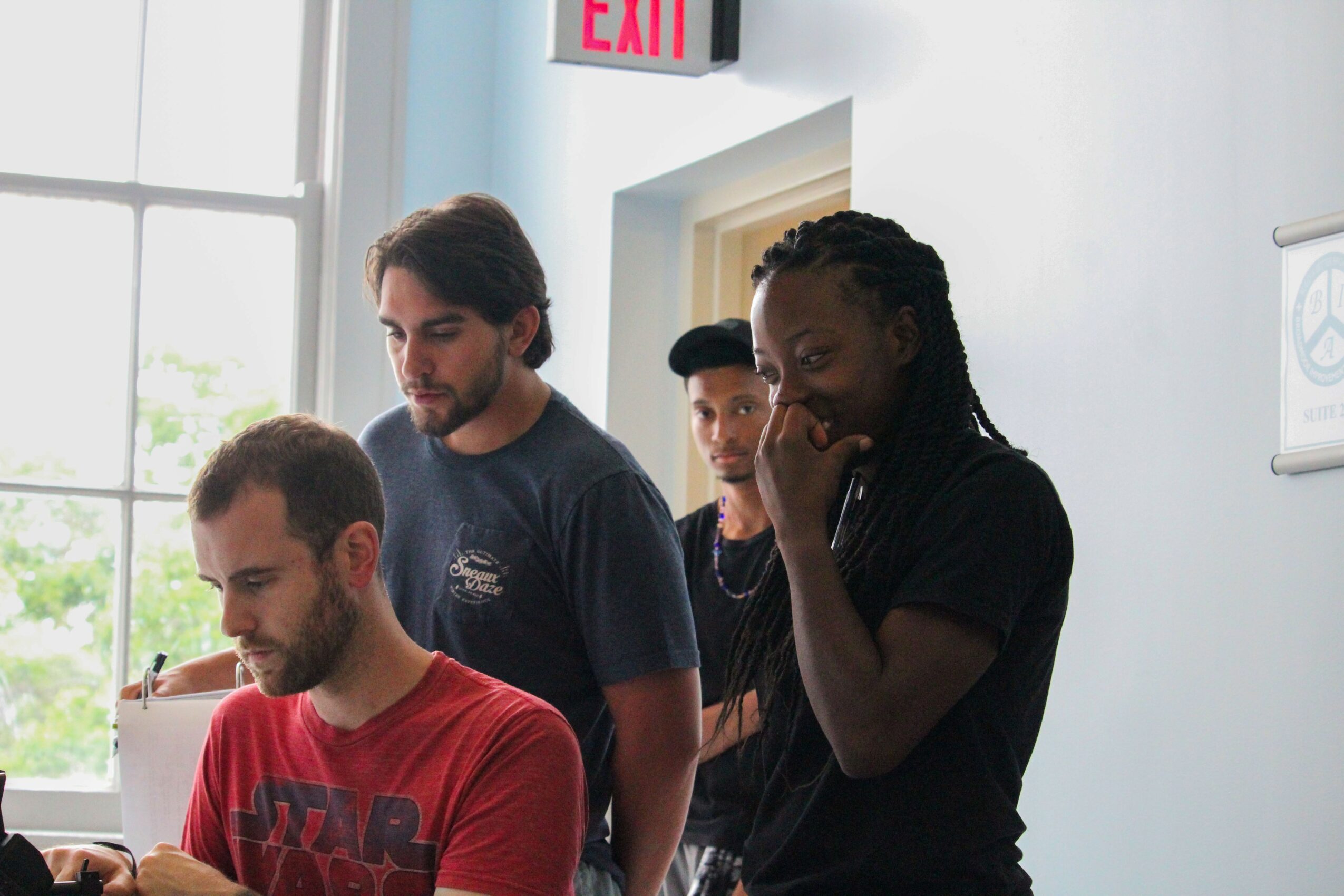
Image Credits:
Jeremiah Turner Ma Bell My Beauty Film Kay Madsen













